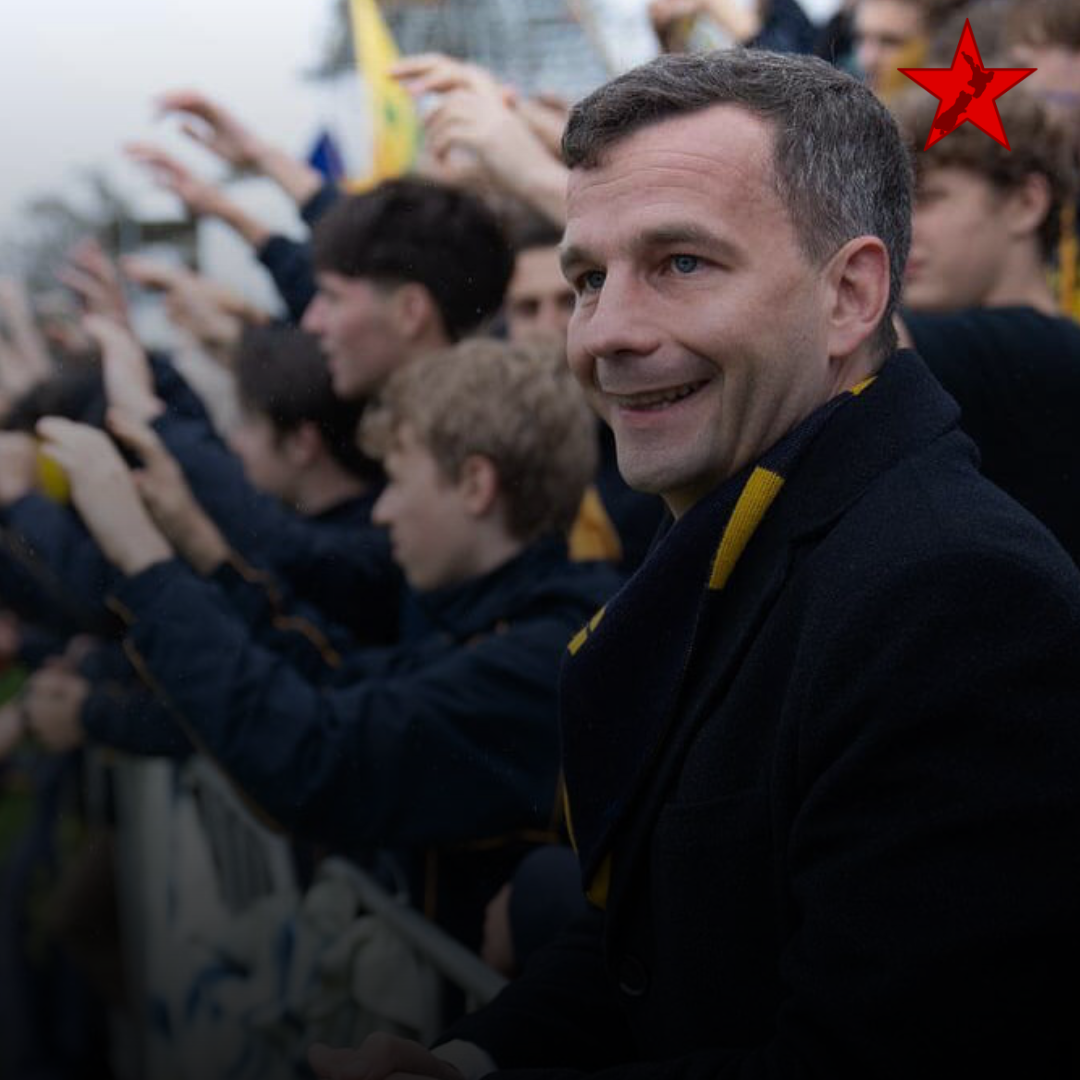Before he became leader of ACT, David Seymour worked for his father's engineering business.
He worked there for seven months before moving on to work for the billionaire-run Canadian think tank, the Frontier Centre for Public Policy. During this time, it was a notorious outlet for climate change denial and down-playing the risks of tobacco.
At an ACT Party conference in 2023, Seymour himself cited that he has “friends” in Atlas, a libertarian, free-market, and conservative think tank based in the US. Since then, he has lied on national television about having links to the group.
He looked RNZ reporter Mihingarangi Forbes dead in the eyes and declared that "no," he did not have links to Atlas. He can be seen pictured with them on multiple occasions throughout 2008, and he referenced them in his 2023 state of the nation.
His speech has since been deleted from the ACT Party website; however, it is still available here (via information gathered by The Bad Newsletter). It states, "The Global Index of Economic Mentality was released in November by my old friends at the Atlas Network."
Alan Gibbs, the father of Atlas's current chairperson and a founding member of ACT, and his wife made a whopping $155,000 worth of donations to ACT during the last election. These are publicly available, and can be found on the elections.nz website.
In March of this year, the now Green Party co-leader Chlöe Swarbrick raised that Seymour had been attacking her for her lack of experience. In the past, he'd also criticised her for the way that she says certain things and the way she smiles.
However, most astonishingly of all, he took particular issue with Swarbrick's consistent usage and citing of evidence. Hitting back, Swarbrick suggested that's because the evidence usually goes against his narrative.
Seymour's work experience, connections, and grievances with other MPs indicate that maybe he is not the charismatic, dorky guy who knows what we need. It's possible that there's something more sinister about him.
The Prime Minister, before a week or so ago, owned seven properties, each worth over $2 million, a total of $21.145 million.
His property portfolios grew by $4.3 million in 2021, and he made $90,000 in capital gains every week in 2022, more money than he made as CEO of Air New Zealand.
He was the wealthiest MP as Leader of the Opposition, and once Prime Minister, he chose to give $3 billion in tax cuts to landlords.
This month, he sold one of his Auckland properties.
On that property, that he bought for $650,000 in 2015, it was listed at a set price of $945,000. That’s a capital gain of $295,000, which he paid no tax on.
Earlier this year, the government repealed the old bright line thresholds, opting instead for two-year period.
The bright line test has gone back to its initial two-year period, as was firt introduced in October 2018.
The new bright line test applies if you have sold a property on, or after, 1 July 2024.
That means any residential property sold within two years of it purchase date with be subject to tax on any profit made from the sale. Property owners buying after this date will only have to pay tax within in that two-year period.
That’s just under the amount of time that he’s owned the property, meaning he’ll pay no bright line and no capital gains tax.
New research from Victoria University has found that the richest people in Aotearoa are paying less tax than others in nine similar OECD nations.
We are one of only a few who have no tax on capital gains, no kind of wealth tax, and have the most pathetic income tax rate.
The Prime Minister and almost every other sitting member of Parliament own multiple properties and have investments in businesses, giving them all an interest in keeping the tax system stuffed and the housing market in favour of landlords.
They don't work for us. We work for them.
UPDATE (4 December, 2024):
The PM has sold his third house this year after changing the brightline test, meaning he made $300,000 tax-free on this sale - likely over $760,000 in profit on all properties sold this year.
Luxon just sold a two-bedroom unit in Onehunga for $930,000 - more than $309,500 than he paid for it in the first place ($620,500).
Had his latest property sale been the same as his asking price, he would have made total capital gains of $769,500 from the three sales. But he won’t actually tell us.
Original images sourced from NZME, RNZ, 1News, Three News, unless stated otherwise

